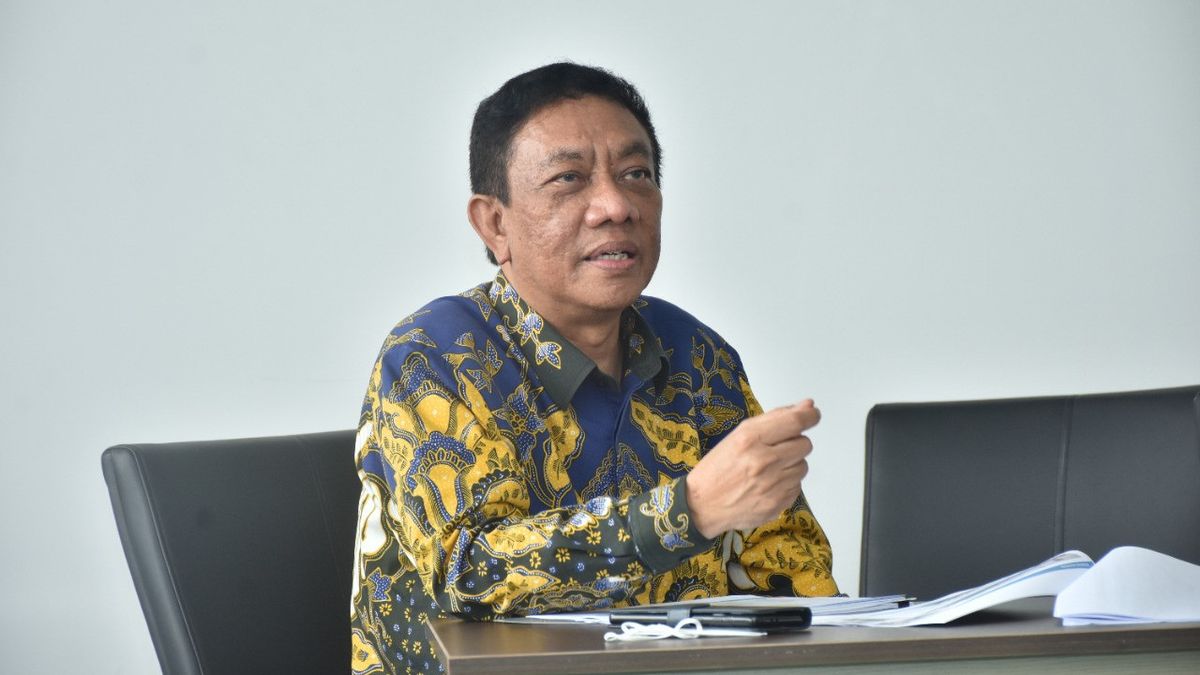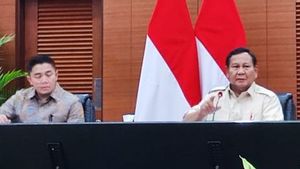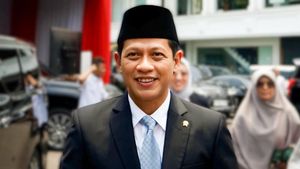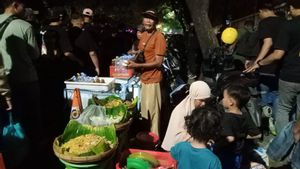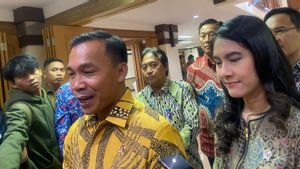JAKARTA - The Ministry of Industry is proactive in collaborating with industry players in order to produce competent human resources (HR). One of them is through the Industrial Human Resources Development Agency (BPSDMI) by implementing a dual system model.
The dual system model is an accommodation for students to learn not only in class, but also directly into the industrial world. "The need for labor in the industrial sector is predicted to continue to rise. In 2024, the need for labor in the industrial sector is estimated to be 20.21 million people or an increase in average of around 682 thousand workers per year during the 2021-2024 period," said the Head of BPSDMI Kemenperin Arus Gunawan, in Jakarta, Tuesday, November 8. This flagship human resource, said Arus, is expected to be absorbed directly in the industrial sector according to the current work market needs. "The dual System is expected to be able to provide benefits to the company, such as getting ready-to-work workers with job internship patterns in the fourth year for two semesters, the availability of continuous workforce, as well as being able to reduce time and cost, such as recruitment and training for new labors for industry," he explained. The dual system program implemented by the Ministry of Industry's education unit received appreciation for being able to print quality human resources without a long recruitment process, so that the costs for recruitment can be trimmed. "From the student side, they can have the opportunity to improve their competence more maturely, while from the school side, curriculum development is adjusted to industry so that links and matches," added Arus. On the other hand, BPSDMI Kemenperin also gives appreciation to its fostered vocational education units that are aggressively cooperating with the industrial sector in its region.
Some time ago, for example, SMK-SMTI Yogyakarta routinely held industrial meeting activities. This industrial meeting (industrial meeting) activity was deemed effective to establish, strengthen, and expand cooperation with industry. "The constructive input provided by industrial partners is the main capital for SMK-SMTI Yogyakarta to continue to carry out continuous improvement in designing vocational education that is truly link and match with industrial needs," said the Principal of SMK-SMTI Yogyakarta, RR Ening Kaeksiwi.Ening added that in order to implement a dual system education model (dual system) can run well, Kemenperin schools continue to cooperate with a number of industrial sectors. "As we did through an industry meeting entitled Sharing Implementation Dual System with the Central Java Area Industry which took place on November 2-4, 2022," he said. From the results of the meeting, the collaboration between industry and SMK-SMTI Yogyakarta is Prakerin (Industry Work Practice) and OJT (On the Job Training) for students in the industry. Prakerin and OJT can be intended for three majors in SMK SMTI Yogyakarta, namely Chemical Analysis, Chemical Engineering, and Engineering. The industrial companies involved in the activity include PT Air Mancur, PT Cahaya Gunung Foods, PT Cahaya Pan Brothers, PT Puratama Kudus, PT Pura Nusa Persada, PT Nippon Indosari, PT Tirta Investama, PT Indo Acidatama, PT Sari Color Aslis Textile, PT Wastec International, PT Marimas Putera Kencana, PT Asia Pacific Fibers, PT So Good Food Dairy, PT Semarang Indo Herbal Indoplant, PT Phapros, and PT GS Battery Plant Semarang.
The English, Chinese, Japanese, Arabic, and French versions are automatically generated by the AI. So there may still be inaccuracies in translating, please always see Indonesian as our main language. (system supported by DigitalSiber.id)
